- “I do well all day and then at night I go off the rails!”
- “The children’s snacks are my weakness”
- “I do well all week and then weekends I just can’t seem to stick to the plan.”
- “I need a snack after dinner when we’re watching TV.”
- “I get hungry mid-morning and need a snack.”
- “At about 4pm I need a little pick-me-upper.”
- “I say I’ll just eat 2 cookies and I end up eating the entire pack.”
- “If it wasn’t for this sweet tooth I know I could lose some weight.”
Could any of the above statements been made by you? Are any of the above impacting your quality of life? Put differently, are you struggling to lose weight? Are cravings getting the better of you? If not, great! You don’t have to read any further unless you’re simply curious or unless you know someone who is struggling to lose weight and for whom cravings seem to always get the better of and you want to understand what’s going on better. But if you’re like very many of us, trying to lose weight, trying to unshackle yourself from the lure of cravings that you know are unhealthy, read on!
Cravings: What is your kryptonite?
Have you ever taken a good look at the foods you crave?
- cookies
- bread
- chips or crisps (depending on where in the world you live!)
- pasta
- pizza
- rice (this used to be my crack!)
- ice cream
- chocolate
- anything sweet!
- anything salty & crispy!
When last have you craved for a steak? Or a chicken? Or salmon? Or a plate of broccoli? Can you eat a pint of ice cream in one sitting? Now consider this: can you eat a whole chicken in one sitting? Can you consume half a freshly baked loaf of bread in one sitting? But have you just sat and craved 4 scrambled eggs? The common thread in the foods that most people typically consume is this: THEY’RE ALL CARBOHYDRATE RICH FOODS! Carbohydrates are starches and sugars, and they all break down to sugar in our blood. So why do we crave them so?
Why do we crave carbs?
There are 2 main reasons why the foods we crave are carb rich:
- They make us feel good
- They are addictive
No, it is not that you lack willpower. It is not that you are weak. It is not that you are greedy. No, it is not a cute little quirk that you have that you HAVE to have ice-cream or that as you put it, you “have a sweet-tooth.” Carbohydrates, especially sugar, activate pathways in our brains that render a feelings of PLEASURE in the moment we’re consuming them. Pure and simple biochemistry. After a stressful day or in the middle of a stressful period in your life, a wedge of chocolate cake seems like a safe haven where you can call time out and actually feel some pleasure.
But the more of these foods that we consume and the more pleasure we experience, the body deliberately down-regulates the receptors to prevent over-stimulation, so we actually need to consume more and more of the stuff to recapture that feel-good state.
The hormone insulin comes into play here as well as far as satiety (or feelings of fullness) is concerned. Whenever we eat carbs, our body secretes insulin. Insulin is responsible for metabolizing sugars (other body processes too, but let’s focus on it’s role in how we use sugar). Many of us are what is termed “insulin resistant.” This simply means that in our bodies, insulin is not as effective as it should be (for various reasons) and the result is that we sugar is not efficiently metabolized. Our body senses this heightened blood sugar level and tries to compensate by secreting even more insulin. The result is that we’re stuck with elevated blood insulin levels, which is not so good. One of the things that this hyperinsulinemia results in is an interruption in the signalling from brain to gut that we’re actually full now. THIS is why you can’t eat 4 crackers from a whole bag, or why when you “pop the top, you just can’t stop.” Or why consuming a whole pizza in one sitting is not so difficult for some of us… biochemistry.
A note on insulin resistance:
How do you know if you’re insulin resistant? Well you can do a blood test. But if you fatten easily, have difficulty “eating in moderation”, or live with type 2 diabetes, or arthritis, or PCOS, or high blood pressure, or have dark skin in the folds of your neck that nothing gets rid of, you are likely insulin resistant. All of these conditions have one common root-cause: INSULIN RESISTANCE. I’ve provided a reference at the end of this post that you check out for more information on insulin resistance.
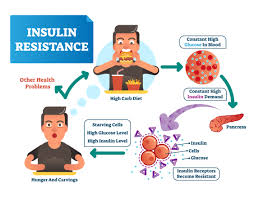
Why do we snack?
For one, we’ve been sold a story that we need to eat small meals frequently to “keep our metabolism up.” Show me the science behind this assertion if you can! There is none. ONE person and ONE person alone benefits from 24/7 eating around the clock: the person who has food to sell. They entice you with convenience and promises of nutrition. Yet the planet is fatter and sicker than we’ve ever been. Additionally, many snacks are what can be described as “hyper-palatable” which means that they taste good, almost magical, and therefore we experience intense desire to eat more. This isn’t an accident. Food engineers continue to search for that sweet spot (pun intended) where carbs + fats + sugar collide to yield hyper-palatability. Chocolate without sugar tastes bad. Boiled potato is not as delicious as potato fried in fat with added salt. Flour by itself simple can’t be eaten, but add some butter and some sugar to it and we’ve got a winner! So we’ve been conditioned to eat round the clock. But there’s more.
Some people genuinely feel hungry and will reach for a snack to fill this gap. BUT ANSWER THIS: WHY ARE YOU HUNGRY? May I suggest to you that if you are eating enough at meal-times, you really won’t get hungry between meals! This holds even truer if you are going beyond merely eating enough at meal times. You need to be eating enough NOURISHING foods at meal times. Fact: carbohydrates are the one NON-essential macronutrient provided that the other 2 macros, proteins and fats, are consumed in sufficient quantities.
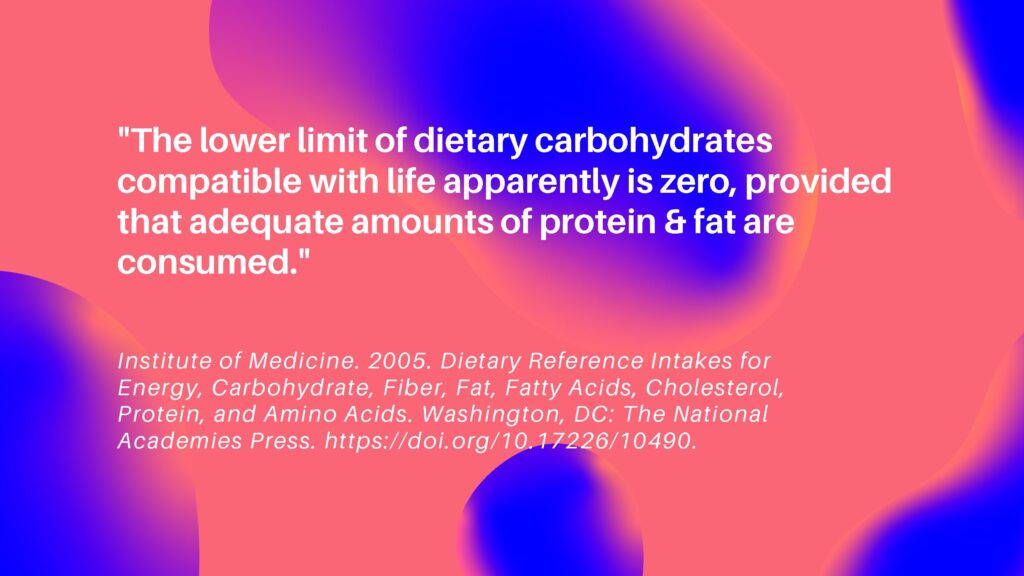
When the body is sufficiently NOURISHED, hunger declines. So consume more protein at meal time and watch your need to snack decline. A protein rich breakfast eliminates the mid-morning blues. A protein rich lunch renders the 4 o’clock peckishness gone forever. And if you have been consuming enough protein and healthy fats during the day, you’re less likely to “feel for something” after dinner at night.
Unless there is another reason driving you to snack…
Snacking because you’re bored or lonely, or both.
Perhaps your need to have your hands and mouth occupied at night as you watch dinner is because you’re bored.
Or because it has simply become a habit.
Or because it helps you feel less alone.
Or because it helps you wind down.
Boredom, loneliness and the need for comfort are all valid feelings and emotions and states of being. Our response to these feelings and emotions does not have to be food however.
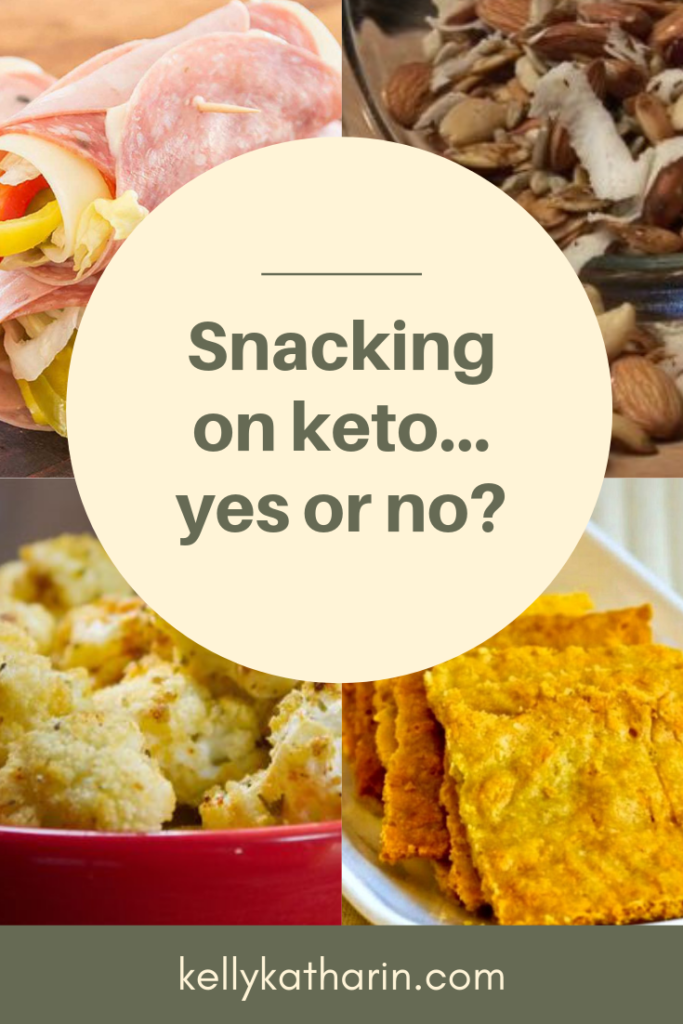
Summary: Why snacking & cravings could be derailing your weight loss efforts & impacting your overall health
- We crave carbs, not proteins and fats.
- In the insulin resistant body, carbs result in persistently high blood insulin levels.
- High insulin levels result in our body holding on to our own fat & interruptions in feelings of satiety.
- The result is constant hunger, difficulty in losing weight, ease in gaining weight, and a difficulty living the “all things in moderation” lifestyle.
- If we’re constantly snacking, our insulin levels remain high and all the things in point 4 above hold true.
Cravings & Snacking getting the better of you? There is a way out.
Once you understand the root-cause of cravings, the solutions makes itself apparent. The first order of business is to keep insulin levels low and stable. This allows your body to burn its own fat for energy and normal signals of hunger or fullness return. How do you keep insulin low? Remove the trigger: carbohydrates. Simple. There’s no pill that can do this.
“Many of us have chosen to eat and live this way for this very reason. You can label the way we eat as “keto” or “low-carb” or “no-sugar-no-grain” or “Atkins” or “paleo”. Don’t get bogged down by a label or a definition. The label is not as important as HOW we actually eat: we remove the trigger that will lead to high insulin levels. I happen to label my way of eating as “keto” although these days I think a more accurate description would be “ketovore” as I tend towards a meat-heavy very low carb diet. Remember, the healing really comes with REDUCED CARBOHYDRATE INTAKE.“
However, removing carbohydrates from one’s diet may be easier said than done for many. It is. Remember the points made earlier about the fact that carbs make us feel good and that they are addictive? If you need soothing and comfort and you remove the one thing that is carrying out that function, what happens next? For one, you simply won’t be able to keep on doing this! It is as if you are cold and you grab that red blanket to wrap up in. And I come along and take that blanket from you saying that it really needs to be washed. But I don’t give you another blanket to wrap yourself in. YOU’LL FREEZE! Taking your dirty blanket away only addressed part of your problem. Taking away your carbs without dealing with your need for comfort and soothing only addresses part of the problem.
“Taking away your carbs without dealing with your need for comfort and soothing only addresses part of the problem.“
Sweet tooth or Sugar Addiction?
This is a controversial topic. It is easy to identify and label an addiction to alcohol, nicotine or gambling. We don’t need any of those. But we need to eat! We need food! How do we label eating as dysfunctional behaviour? Well answer this: why do you find it so hard to give up eating chocolate? Think it is merely personal preference? Why has it been so hard for you to shed that pesky 15 lbs? You’re weak? Greedy? Why do some people balloon to 300, 400, 500, 600 lbs despite feeling like shit physically and emotionally all the while understanding that it is the very food they’re eating plunging them into this state? Mere cognitive dissonance?
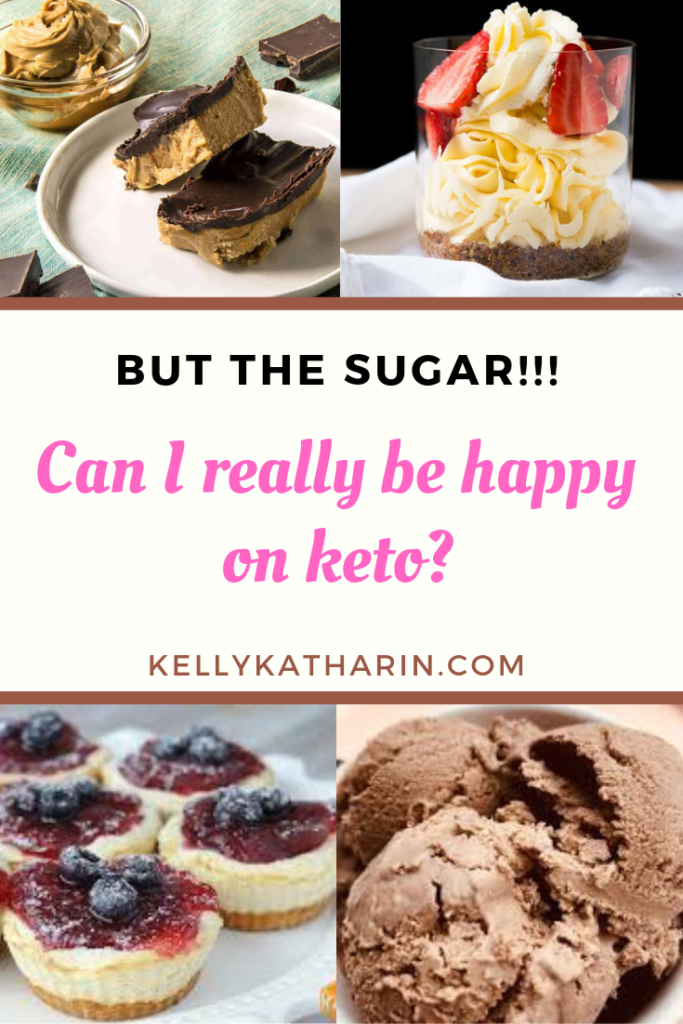
Only you can determine if you’re an addict or merely someone who can and should exercise better control. The answer however, is very important, as it prescribes the way forward to weight loss and better health. Some people will be able to break old habits and form new ones that do not feature sugar or food. Great! Others will not be able to since their dependence is in the form of an addiction. Think of it like this: YOU many be able to enjoy a glass of wine. An alcoholic cannot! That one glass of wine will swing that door wide open and the alcoholic will end up going on a drinking binge as a result of that one glass of wine! So which are you?
In her excellent book Fork in the Road, Jen Unwin provides a questionnaire that helps you understand if addiction is at play in your circumstance. I also elaborate on the topic of “Could it be food addiction ?” in this post, and provide a tool that help you determine if addiction to food could possibly be part of your situation. If addiction is at play, then your way forward may call for total abstinence. The more you starve a craving, the weaker it becomes.
Some people move towards abstinence via a tapering-off approach: using low-carb sweeteners instead of sugar, reducing the frequency of even low-carb sweet treat consumption. Others go cold turkey. Knowing what works for you may require experimentation. It demands honesty on your part.
In Part 2, I will go into more detail on approaches to self-soothing without food, and cutting edge approaches to practically dealing with food addiction.

References:
- Fork in the Road: A Hopeful Guide to Food Freedom by Jen Unwin
- Why We Get Sick: The Hidden Epidemic at the Root of Most Chronic Disease—and How to Fight It by Benjamin Bickman
- The Hacking of the American Mind: The Science Behind the Corporate Takeover of Our Bodies and Brains by Robert Lustig
- But the Sugar! Can I really be happy on Keto? https://kellykatharin.com/i-love-sugar-how-can-i-be-happy-while-keto/
- What about snacking on Keto? https://kellykatharin.com/what-about-snacking-on-keto/
- How I changed 5 habits to lose weight on Keto https://kellykatharin.com/how-i-changed-5-habits-in-order-to-lose-weight-on-the-keto-diet/
DISCLAIMER:
I am not a medical doctor nor am I a certified nutritionist and make no claims to the contrary. Each individual’s dietary needs and restrictions are unique to the individual. You are ultimately responsible for all decisions pertaining to your health. Nothing stated in this post or on this website should be taken as advice, nor is it intended to diagnose, treat, cure or prevent any disease. It should not be considered a substitute for professional medical expertise or treatment. You assume full responsibility for consulting a qualified health professional regarding health conditions or concerns, and before starting any diet or making any change in your lifestyle.
The form you have selected does not exist.

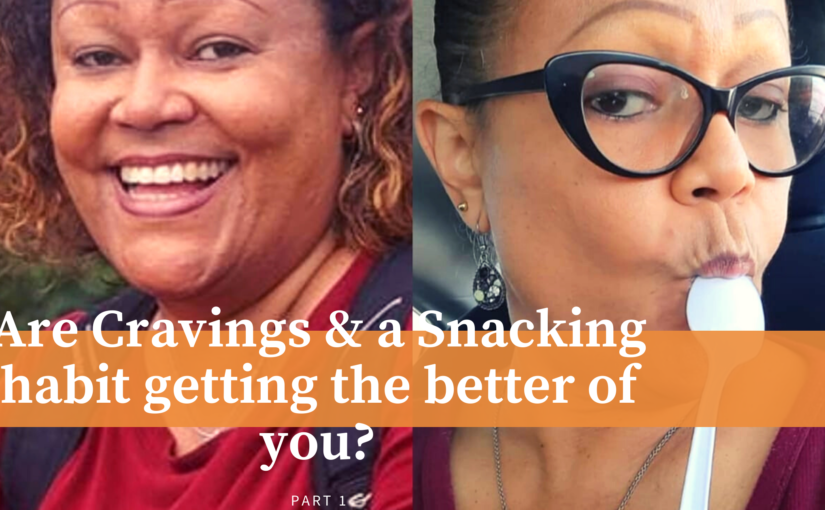
Good read. It’s always good to share experiences. Thank you and good going 💜
This is an excellent and very helpful article, Kelly. Thanks for sharing. There is hope and healing ahead.
Thanks, Kimberly. There is always hope!